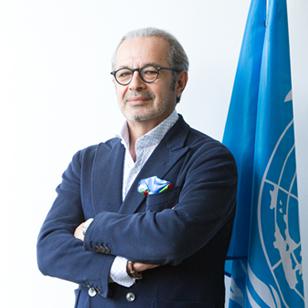Share knowledge for learning, not marketing
Developing case studies, preparing lessons learned and documenting good practices are all essential parts of an organization’s strategy to capture, codify and use knowledge to improve its workings. Documenting experiences in an analytical and honest manner is an effective way to have a better and more comprehensive understanding of the business, be it in the public or the private sector. Sharing such information among relevant offices and departments within an organization helps to see the underlying reasons for success or failures of a particular business strategy, projects, and more. Considered as critical components of an organization’s approach to managing knowledge, such products, when developed properly, help employees at all levels to make better decisions, duplicating what works and avoiding what does not. Recognized as valuable tools for making decisions, knowledge products can contribute to turning organizations more effective in achieving their goals while saving resources that otherwise would be invested in bad and failed ideas. However, would these products work in the UN? My answer is…it depends!
The concept of knowledge management with its various interpretations has been around in the UN for the past twenty years. Some more successful than others, multitude of UN organizations have tried and continue to institutionalize knowledge management in their organization’s business practices. Tools such as case studies, good practices and lessons learned are regularly developed and shared with respective offices and individuals. When done properly, these products have proven their usefulness. However, when used as PR tools and heavily tilted to serve political purposes, KM products serve no purpose and should be considered as a waste of money.
What makes or breaks a KM product is its comprehensive and unbiased coverage of chain of events, all of them: the good, the bad, and the ugly. While we as individuals and organizations can learn from what went right, we are also inclined to learn from mistakes and failures.
Today, helping organizations to learn from their past failures has become the speciality of a large number of consulting firms, big and small. Trying to shed the fear of admitting failures is no small issue. Anxiety over the possibility of being reprimanded by the boss and sanctioned by the organization are all parts of why organizations need to be coached on embracing the admission of failures rather than keeping them hidden in the closet.
While the practice has been entrenched in the work of many public and private entities throughout the world, for obvious reasons, the hospital sector and the airline industry are on the forefront of identifying mistakes and bottlenecks as the routine assessment of their work. This has not happened overnight but progressively over the years to recognize that, while the primary interest is the saving of lives and the overall patient/client satisfaction, identifying mistakes also helps to save significant sums that otherwise have to be spent on the consequences of repeated mistakes.
To recognize failures as an asset rather than a liability, the UN needs a culture shift. This is not a simple task in a large, complex and politically sensitive organization but it can be done. Open discussion with Member States wishing the UN to reform itself, coaching and expecting managers at all levels to encourage staff to openly discuss mistakes and failures, rather than admonishing them, help to gradually change the organization’s culture. Developing reliable case studies, lessons learned, good and bad practice briefs are time consuming and requires serious investments; both in terms of staff time and money. Managers should realize that these are developed and shared to contribute to making sound and better decisions and not for trumpeting achievements only. To publicize good work, managers should turn to PR professionals and leave KM in the hands of experienced and well-trained specialists. These are two different products, serving two different audiences, for two different purposes.
